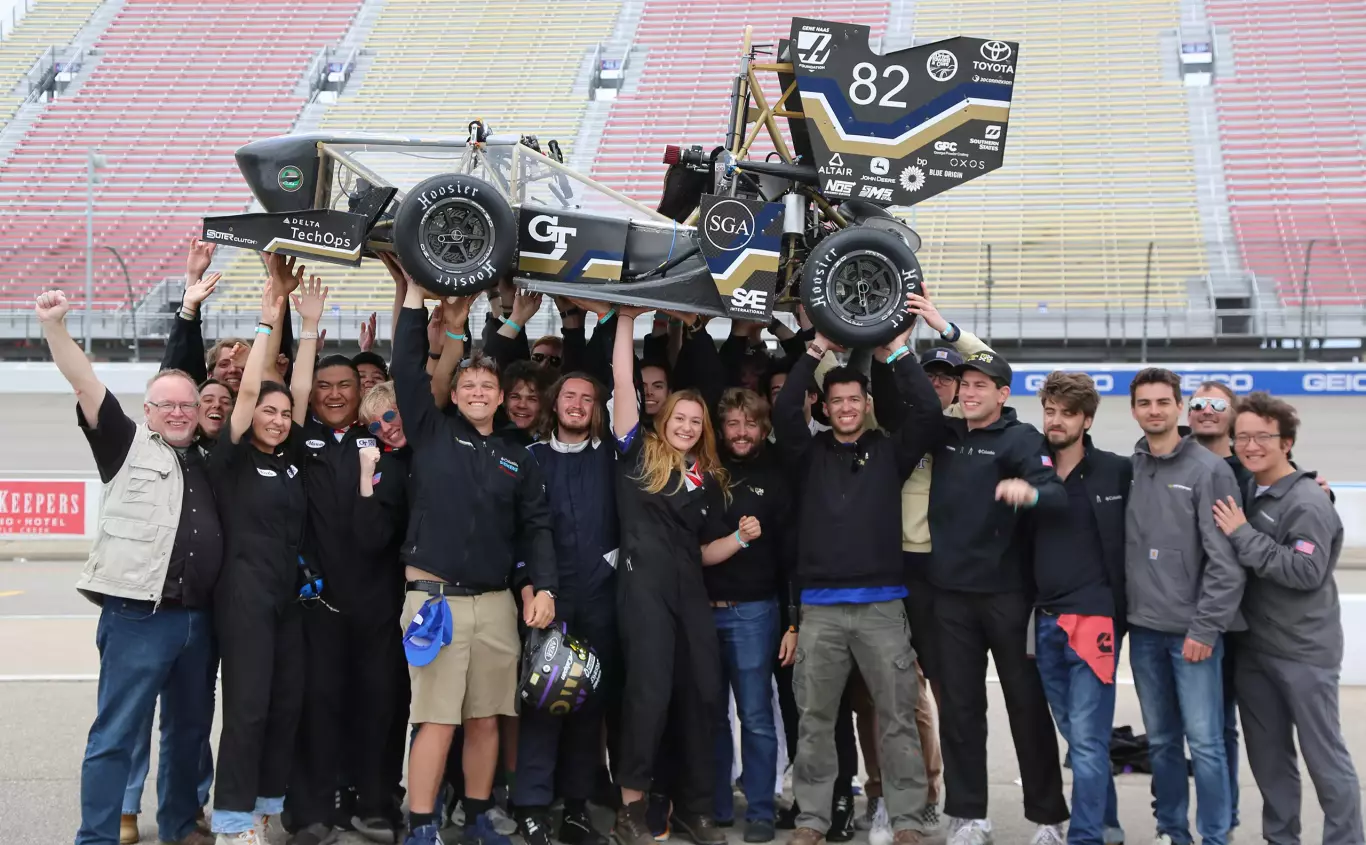
When Eli Kuperman looks at a car, he does not see a single object so much as a collection of interdependent subsystems — suspension, powertrain, aerodynamics, to name a few — and all of them are costly. “Race cars are expensive,” said Kuperman, a fourth-year business administration student and team lead for GT Motorsports, a student organization where members compete against other college teams to design, fabricate, and race F1-style vehicles. “The steel tube chassis that holds everything together costs $10,000 alone. And that is before we can even think about putting wheels on it or an engine in it.”
Membership dues and fundraisers are not sufficient for projects of this scale. Only through the support of Georgia Tech’s Student Government Association (SGA), College- and School-level funding, and, crucially, corporate donations from organizations such as John Deere, Caterpillar, Texas Instruments, and others can student organizations undertake such ambitious endeavors.
“Corporate sponsorships are critical to our operation,” said Schuyler McCaa, a fourth-year aerospace engineering student and team lead for the Yellow Jacket Space Program (YJSP), which develops liquid-propellant rocket systems. Like race cars, rockets come with significant costs, but the generous support of more than a dozen sponsors, including six at the $30,000-and-higher level, help defray these expenses. “Without them, the work we do would not be possible,” she said.
Corporate support for student organizations may take the form of outright gifts; in-kind donations like software, parts, or tools; or, in some cases, subject matter expertise and mentorship. Students “gain hands-on, real-world experience in design-build activities in a competitive environment,” said General Motors Business Analyst Chris Boehle, CE 2001, M.S. CE 2007. General Motors is a long-standing sponsor of GT Motorsports and other competition teams. “Building these competencies provides a great advantage in their careers,” he added.
But skills acquisition and financial support are not the only benefits students see from corporate partnerships. Shreiyas Saraf, a fourth-year computer science major and director of external affairs for the student organization Data Science at Georgia Tech (DSGT), said that while corporate philanthropy accounts for approximately 80% of the budget for Hacklytics, DSGT’s annual, three-day hackathon that draws more than 1,000 attendees, the networking that extends from the partnership is equally, if not more, valuable. According to Saraf, corporate representatives often engage with students in meaningful — and mutually beneficial — ways. “Sponsors come to campus and recruit students, host workshops, design challenges, and even help market our event,” he said.
The same is true for students involved in GT Motorsports, and Kuperman noted that several of his race team’s members have secured internships, co-ops, and full-time employment through interactions with their industry supporters.
For Wenting Sun, associate professor in the Daniel Guggenheim School of Aerospace Engineering and faculty advisor to YJSP, sponsorships provide intangible, morale-boosting benefits as well. “Support from sponsors goes beyond merely sustaining students’ work,” he said. “It becomes a continuation of their dreams. It serves as both recognition and encouragement. It offers inspiration.”
Maybe the biggest impact of corporate support for student organizations has less to do with the innovations it makes possible or the career networking it promotes than with the belonging it helps nurture. Undergraduate Student Body President Aanjan Sikal, a fourth-year industrial and systems engineering student, said that SGA has seen a marked uptick in participants — more than 51,000 students combined — across Tech’s 656 registered student organizations over the last two years, growth he attributes to a desire for connection following the Covid-19 pandemic. “Corporate sponsorships are more important than ever,” said Sikal. “They fundamentally affect the day-to-day operations” of the student organizations that “foster a real sense of community on our campus.”
